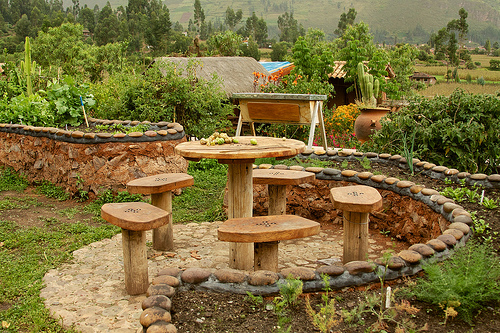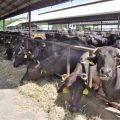Farm tourism’s non-inclusion in the Investment Priorities Plan (IPP) 2017 and lack of financing for agritourism cooperatives have been identified as major gaps that hinder Philippines’agritourism development.
In a farm tourism workshop hosted by the Southeast Asian Regional Center for Graduate Study and Research in Agriculture (SEARCA), a strategic plan has been presented to iron out the gaps that will make the Philippines benchmark with the progressive farm tourism prominence of Japan and Thailand.

“It is imperative to close the gap to ensure that there is a harmonized approach to development, monitoring, and evaluation across all partner agencies,” said Gwendolyn S. Batoon, Department of Tourism (DOT) Farm & Ecotourism team head at the SEARCA workshop.
DOT is adopting the “Philippine Brand” which patterns after Thailand’s use of its unique identity of farming rice and silk while promoting its canal waterways as conveyors of marketing farm produce.
At the same time, its other benchmark is Japan’s use of “prefecture” identity—promoting its unique products like wasabi and wagyu.
Promoting farm tourism has been a top advocacy of SEARCA since it introduced in 2012 the first Philippine National Agritourism Research Conference, believing it is a route to more rural jobs and increasing farmers’ income.
“We are happy that four years later, the Philippines has signed into law the Farm Tourism Development Act. It will help raise farmers’ income and increase players in the rural tourism industry,” said SEARCA Director Gil C. Saguiguit Jr.
He cites important progress in agritourism in the Mekong sub-region.
“Southeast Asia is blessed with natural resources… some have potentials to contribute substantially to the region’s economy. The Mekong sub-region have recognized that agriculture and tourism are not totally mutually exclusive. These have convergence points that bring value added to each other,” Saguiguit said.
SEARCA has partnered with the International School of Sustainable Tourism, Agricultural Training Institute, Technical Education and Skills Development Authority (TESDA), and Department of Trade and Industry, and the office of Sen. Cynthia Villar in pushing for agritourism development.
Batoon said these are other important gaps to solve:
· Absence or lack of marketing support or corresponding financial incentives including those for joint promotions, participations in trade fairs and exhibits, standardization of farm tourism brands, and assistance in distribution and marketing of farm products
· Absence of comprehensive farm tourism information system
· Absence of capacity building of local government units and for farm owners to take on functions of tour operators to improve mark up in favor of farmers and given seasonal workforce
· Absence of data on supply side, trends and innovations on farm tourism that may be shared with operators
· Inadequate knowledge on manpower needs, sustainable practices, and lack of data on sustainable farm tourism
· Un-harmonized competency standards on training regulations and cost of accreditation for farm tourism enterprises
· Absence of technical vocational training for farm tourism operators/practitioners
· Absence of subsidy for farmers to attend international conferences to benchmark against international models
· Lack of integration of hospitality programs and absence of formalization of farm tourism employment
· Lack of infrastructure support to develop farm to market road, access road to the farms and ultimately widening to accommodate farm tourism capacity.
· Lack of retail orientation for “roadside curbs to contribute to the sales of the farms that provide the produce for these destination specialty goods”
· Lack of assistance for farm sanitation and energy management which is an expensive cost for industries
Tourism can become a strong source of economic growth, she said.
“When agritourism experience becomes an event that leaves a lasting impression of ‘Made in the Philippines’ and the Philippines’ Way of Life, tourism truly becomes a pillar of economic growth in the rural community,” said Batoon.
Government needs to promote destinations as sources of specialty products. This will expand the small and medium enterprise (SME) supply chain.
“Agritourism has the potential to enhance the appeal and demand for local products not only to the domestic market but to the international travelers who can be the catalyst for growth in the international market,” said Batoon. End (Growth Publishing for SEARCA)






